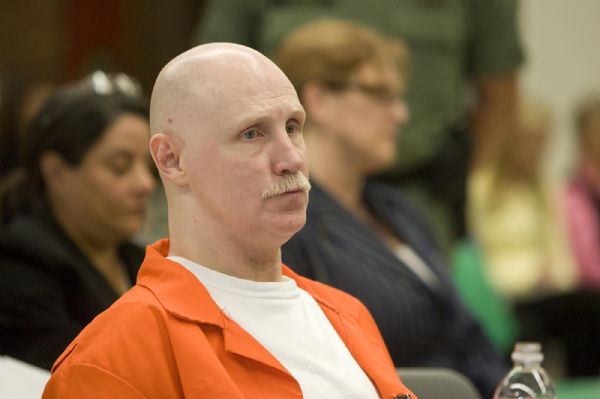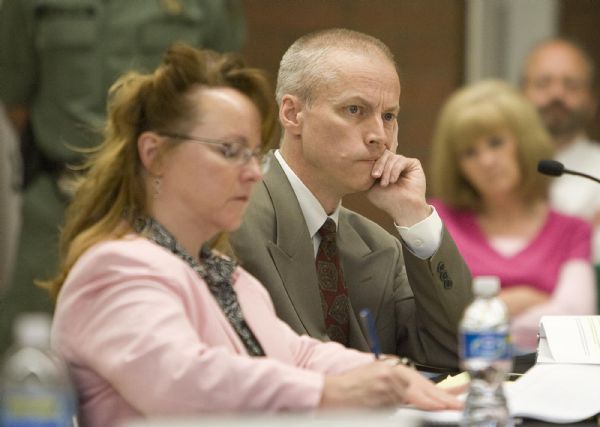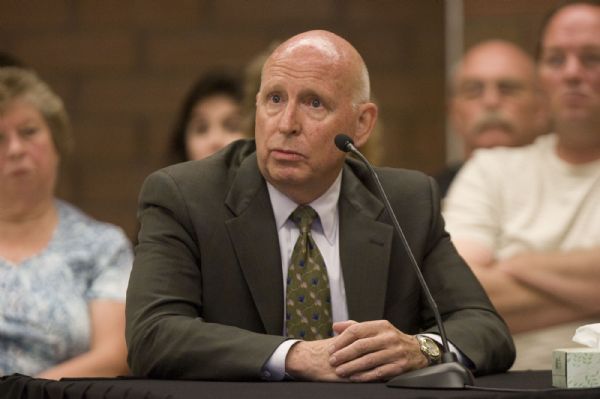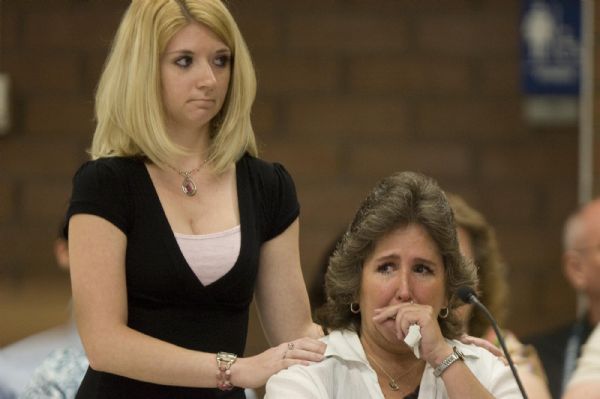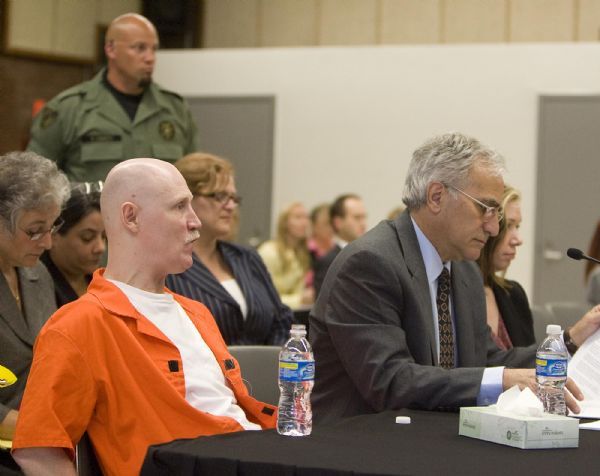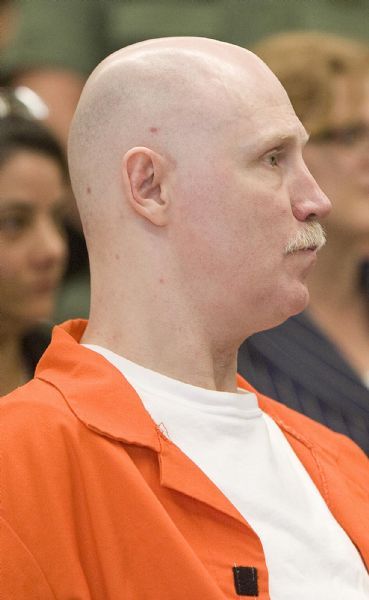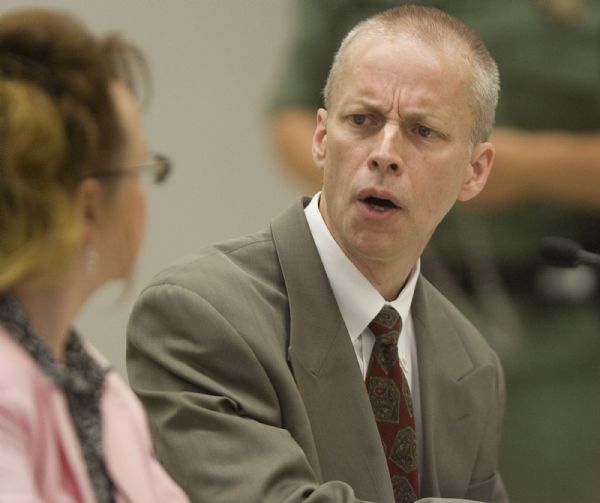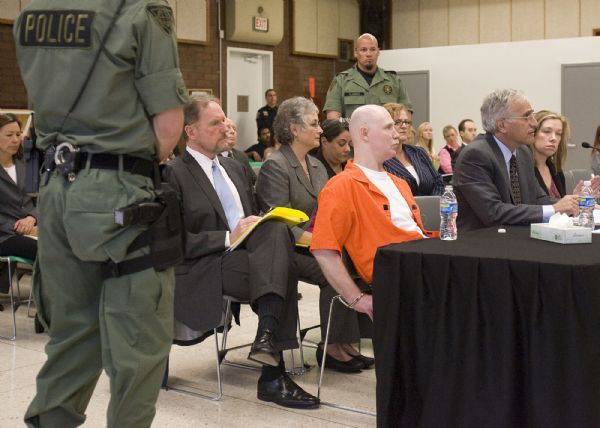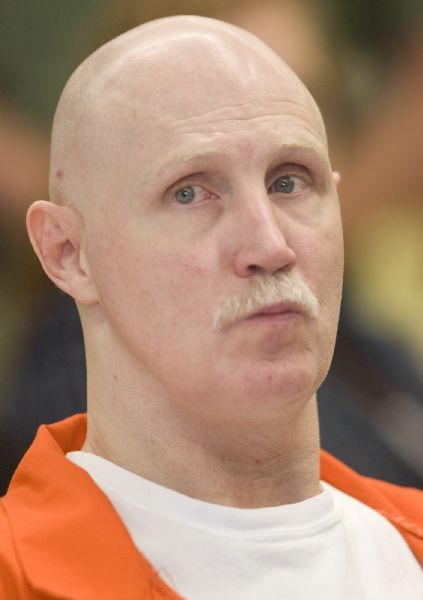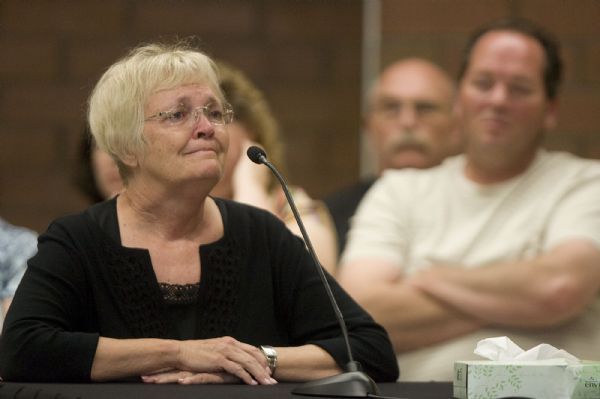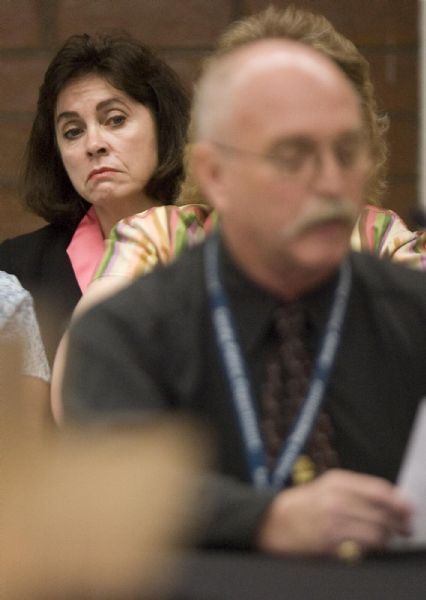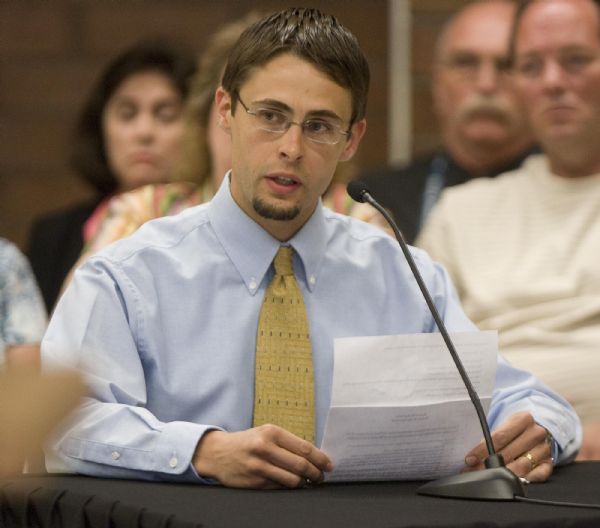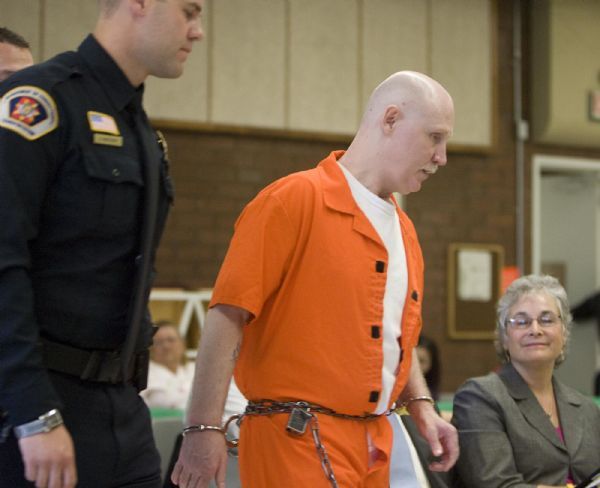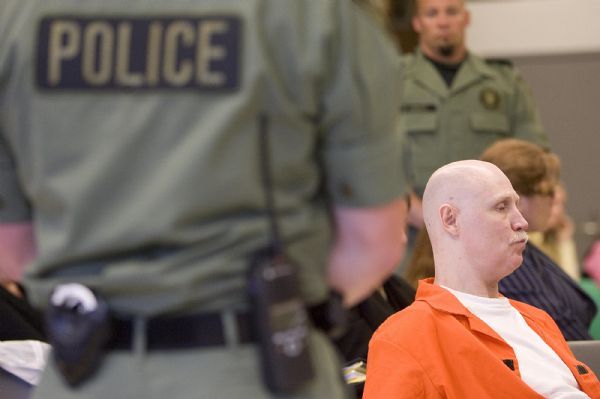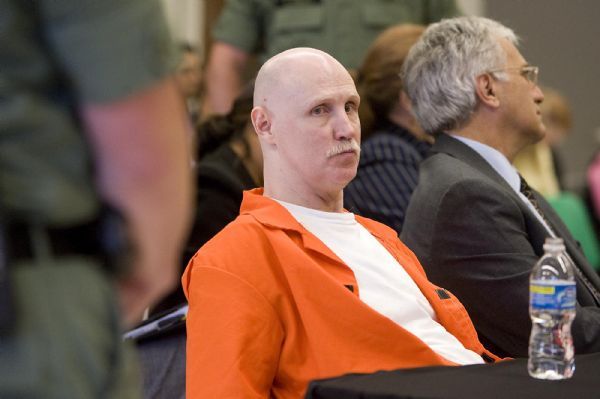This is an archived article that was published on sltrib.com in 2010, and information in the article may be outdated. It is provided only for personal research purposes and may not be reprinted.
Draper » With just a week left before he's slated to be executed by a firing squad, condemned murderer Ronnie Lee Gardner asked to be spared.
"I'm really trying to change people's lives," the 49-year-old told the Board of Pardons and Parole, which will have the final word on whether he lives or dies.
Among the good works he cited at a Thursday hearing at the state prison was his counseling of other inmates, including a 16-year-old boy who was certified as an adult after shooting and wounding someone.
"I think I'm a perfect example of what not to do," Gardner said.
He also is working -- with the help of his family -- to set up a farm in Box Elder County where children would learn about organic gardening. Gardner's lawyer, Andrew Parnes, read a letter his client wrote in 2008 to talk-show host Oprah Winfrey asking for a donation.
Gardner said he is "really remorseful" for all his crimes.
When asked by board member Clark Harms why his sentence should be reduced to life without parole, the killer replied: "I can do a lot of good."
The board will reconvene at 8 a.m. Friday for closing statements, then on Monday announce its decision.
A majority of the board, or three members, must vote in Gardner's favor for him to be spared.
Gardner was sentenced to die for killing attorney Michael Burdell during an April 2, 1985, escape attempt from a courthouse in Salt Lake City. His execution is scheduled for June 18.
Earlier in the hearing, a mitigation specialist testified that three members of the jury who sentenced Gardner to death have said they would have imposed life without parole if that option had been available in 1985.
Mary Goody, who gathers information in capital cases that supports life in prison over the death penalty, told the board that one of those jurors said she locked herself in a bathroom to get away from the badgering of others but finally gave in and voted for death.
She also said Gardner has undergone a transformation in recent years. "He's brave enough to want to learn more about himself and his family," she said.
In an opening statement, Parnes said his client is a changed man who has taken responsibility for his actions.
But Assistant Attorney General Thomas Brunker countered, "He earned a death sentence for an unflagging history of violent crime."
Witnesses at the clemency hearing also
were split on whether Gardner should be spared.
Friends and the father of Burdell, the lawyer Gardner shot to death, support commutation.
"He was totally against killing for any reason," friend Ron Temu said of Burdell. "I know that whatever circumstances he would have ever been put into, he would never have taken another person's life."
And a crying Donna Nu, Burdell's girlfriend, said, "If there are any so-called victims' rights, Michael would not have wanted Ronnie Lee killed, executed."
But Craig Watson, whose cousin was killed by Gardner during a 1984 robbery, said his family wants the punishment carried out.
"Our answer is no," Watson said of the request to spare Gardner's life. He looked straight at Gardner as he left the witness table.
Gardner had been brought to the courthouse the day of his escape attempt for a hearing in the 1984 slaying at a Salt Lake City bar of Melvyn Otterstrom, a husband and father who was a controller for the Utah Paper Box Co. by day and a part-time bartender in the evening.
After a woman slipped him a gun, Gardner wounded bailiff Nick Kirk and fatally shot Burdell before being captured on the courthouse lawn.
Third District Judge Robin Reese signed an execution warrant on April 23 and Gardner chose the firing squad over lethal injection as the way he will die.
Craig Haney, a psychologist at the University of California at Santa Cruz who studies patterns in the backgrounds of violent criminals, said Gardner's life is among the worst for risk factors. Those include neglect, abuse, poverty, drug use and exposure to traumatic events, he said.
"Ronnie Lee Gardner had to cope with truly awful things that were done to him and that helped make him who he is," Haney said. "The record of neglect and abuse in his case is continuous."
He said that Gardner has markedly improved in the past 10 years and had no serious infractions on his record since then. Previously, he had been constantly in trouble, Haney said.
"To turn that around requires self-reflection," Haney said.
When it was his turn to speak, Jason Otterstrom pointed out that Gardner had committed numerous crimes before he killed his father, Melvyn Otterstrom. The younger Otterstrom was just 3.
"I've been told stories of how much my dad loved me, that he was a caring husband and a wonderful friend. I believe it but I will never know," he said.
Otterstrom noted that there were people in the room who wanted the sentence commuted and others who wanted it carried out. For him, the choice was not clear and he acknowledged, "I am torn."
Kirk survived the shooting but his daughter, Tami Stewart, said he was in pain every day for the rest of his life and was in counseling to deal with his anxiety.
Every time the case was in the news, Stewart said, "my father would again see the smiling face of Gardner as he pulled the trigger."
"The agony and toll he placed on my father deserves justice and we ask that it be given," Stewart said.
Kirk died in December 1995.
ncarlisle@sltrib.com
brooke@sltrib.com
csmart@sltrib.com


